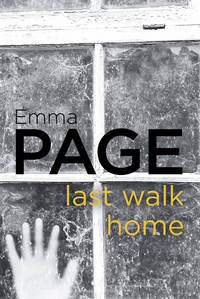
Полная версия
Every Second Thursday
‘It’s a lovely time of year,’ Matt said with deep pleasure. ‘The pheasants will be fine and fat now.’
She gave him a sharp slap on the arm. ‘Don’t let me hear of you poaching,’ she said fiercely.
Not that he’d ever actually been hauled up into court and charged with poaching, and not that he’d ever admitted such an activity to her, but she had grave suspicions all the same. He gave her a reassuring grin and she turned back into the kitchen.
Matt walked along the side of the house and saw Mr Foster backing his car out of the garage. Matt couldn’t help himself, he took a chance; no need for Alma to know if it didn’t come off. He went up to the car and stooped by the window.
‘All right if I take that bit of wood?’ he said amiably to Mr Foster. ‘I’ll give you an hour or two in the garden for it.’
Gerald Foster turned from his own preoccupations and was momentarily irritated by the cheerful cadginess of Bateman, Matt’s happy assumption that other men strove so that he could help himself to the fruits of their labours.
At another time Gerald might easily have nodded agreement, might have been no more than mildly amused by Bateman’s cheek. But now he said curtly, ‘It’s certainly not all right. You leave that wood where it is. Ned Pritchard is to have it. He chopped it down.’ Gerald began to turn his car.
‘That’s all right, Mr Foster,’ Matt said genially. ‘No offence intended and none taken, I hope.’ Gerald merely nodded and grunted in reply and Matt went swinging off down the drive.
He whistled as he strode along the road. He walked with a strong upright carriage, jaunty and free. He was still agile and quick on his feet in spite of his sixty-nine years.
All his life he’d been a country lad, wouldn’t give you tuppence for the town. He disapproved of almost every change that had taken place in his lifetime. He ignored the greater part of those changes and lived his life in a manner not much different from the way his father had lived his.
Matt lived in the cottage where he had been born; during his working life he’d been a labourer in the local quarry where his father and grandfather had worked before him.
In Matt’s eyes the village of Abberley was the centre of the universe. He’d grown up with the strong conviction – passed on to him from his father – that disaster would surely strike any man rash enough to wander far from his native sod.
He had set foot in the neighbouring town of Cannonbridge no more than a couple of dozen times in his life. He’d been further afield than that only once, in the days when his Dad was alive.
The Vicar had organized a coach outing to the seaside on the occasion of the Silver Jubilee of King George the Fifth. Matt’s Dad had prophesied disaster for the outing, and Matt’s Dad had been right.
Matt was sick on the coach going to the sea and even more sick on the coach coming back. As he finally staggered off the coach at the end of the day he vowed never again to set foot on anything more venturesome than the bus into Cannonbridge.
He glanced about him now as he swung along. I’ll slip on up to Farmer Jauncey’s top field, he decided. Plenty of good wood up there and Jauncey didn’t mind him slipping along once in a way to help himself.
Matt was as vigilant and observant as any professional gamekeeper and in return for the blind eye turned on his own pursuits by local landowners he made sure no gangs of townee villains came on to their terrain to plunder and steal in quantities Matt couldn’t and wouldn’t have shifted in a dozen lifetimes of semi-honest endeavour.
He reached the top field and surveyed the ground. He would just take enough wood now to be going on with, he could come back again later.
His sharp eyes spotted some droppings under a tree and he stood for a minute or two staring up into the branches with keen interest.
Then he pulled a length of stout rope from one of his pockets and began to pile up a nice selection of boughs, ready to sling the bundle across his shoulders.
It was still not quite ten o’clock. Miss Jordan went quietly up from the kitchen where she had been drinking coffee with Alma and softly opened the door of Mrs Foster’s bedroom.
She peeped in to see if Mrs Foster was settling down for her nap. But Vera was still wakeful; she heard the whisper of the door.
‘I’m not asleep,’ she said loudly. ‘Come in.’
Miss Jordan went into the room. ‘Would you like your hot chocolate now?’ she asked. Vera was very fond of hot sweet drinks, chocolate in particular.
‘No, I’ll have it later. I want you to phone Doctor Tredgold now, I don’t feel at all well.’
Miss Jordan glanced at her watch. ‘You must phone him right away,’ Vera insisted. The doctor was a stickler about time. He liked all house calls to be notified before ten o’clock.
‘I can’t in all honesty tell him,’ Miss Jordan said with a small sigh, ‘that I think he ought to call. I can’t see that you need him. He’s a very busy man.’
Tredgold was no longer young and his temper wasn’t sweetening with advancing years. But Vera wouldn’t dream of changing doctors. He’d been her father’s doctor, her own doctor since she was a child of seven.
She began to struggle up in the bed. ‘If you don’t phone him, then I will,’ she said with determination.
‘Very well, I’ll do as you ask.’ But Miss Jordan wouldn’t make use of the phone beside the bed. She was far too professional for such amateur indiscretions. She went down to the study; the phone there wasn’t connected to the one in the bedroom.
A few minutes later she went back up the stairs, carrying a tray. ‘Doctor Tredgold will be here about half past eleven,’ she told Mrs Foster.
She set down the cup of chocolate and a small plate of the sugary biscuits Mrs Foster liked. She made no mention of the doctor’s irritated references to neurotic female patients and the wasting of his valuable time.
‘I knew he’d come,’ Vera said with a satisfied smile. ‘He always comes when I want him.’ She waved a hand. ‘I’ll have the white tablets now.’
Miss Jordan brought over the bottle; it was almost empty. Vera tipped a tablet out into her palm. ‘I’ll have to ask him for some more of these,’ she said.
As she sipped her chocolate she suddenly said, ‘You might pass me my father’s photograph.’
This was a large studio portrait. Vera often liked to hold it, to look at her father’s wide brow and resolute chin, letting the happy days of the past rise up before her.
Miss Jordan picked up the photograph in its heavy silver frame and carried it over to the bed.
‘I’ve always liked this one best,’ Vera said fondly. She smiled down at her father, sitting with one hand propped under his chin, gazing back at her with his shrewd and penetrating look.
‘That’s the way I remember Daddy. Sitting at his desk downstairs, looking just like that, thinking about things.’
CHAPTER 2
It was past noon by the time Doctor Tredgold’s car halted outside the front door of Lynwood.
‘Mrs Foster can be very difficult when she chooses,’ the doctor said to Miss Jordan as they went up the stairs. ‘But I’m sure there’s no need for me to tell you not to pamper her.’ He had formed a high regard for Miss Jordan’s competence.
‘Mrs Foster’s very much inclined to make the most of this sciatica,’ he added. ‘Nothing she likes better than being waited on and fussed over.’ A widower now for many years, with his own burden of aches and pains to bear as the years ground remorselessly on, he had less and less sympathy these days with any attitude on the part of his patients that remotely resembled hypochondria.
‘I’ve already mentioned that I’m thinking of leaving in a few days,’ Miss Jordan said.
He nodded energetically. ‘That’s the ticket. Force her to get up. She’d stay in bed till Christmas if we let her.’
They reached the door of Vera’s bedroom. ‘Come now,’ Tredgold said to his patient with forceful joviality as soon as Miss Jordan showed him into the room. ‘Why aren’t you sitting outside on this beautiful day?’ Vera made no reply; her face took on a mutinous look.
The curtains were partly drawn together against the dazzling sunlight and the doctor crossed to the window and drew them fully apart. He glanced out at the valley lying tranquil in the sparkling air.
‘We won’t get many more days like this before winter,’ he said. ‘You should make the most of them.’
Miss Jordan withdrew to the door. ‘I’ll be just along the corridor if you should need me,’ she said as she went out and closed the door behind her.
The doctor stood looking out at the hill opposite, at the porcupine crest of trees along the ridge, the green tints shading from palest lime to deepest olive.
‘I’ve always loved that view.’ He was silent for a moment, remembering how he had stood there in Duncan Murdoch’s time; Duncan had been a valued friend. He gave a little sigh and turned back to the bed with a softer expression.
‘Is the leg really painful still?’ he asked with a little grin. ‘Or are you laying it on – just a bit?’
Vera closed her eyes. ‘The pain comes and goes. It’s still pretty bad at times.’ She opened her eyes. ‘I need some more of the white tablets.’
He picked up the bottle and looked at the few remaining tablets. ‘You’re taking a lot of these,’ he said with mild reproof. ‘You should take them only when you find it necessary, not three times a day like clockwork.’
She pulled a little face, placatory, like a child. ‘I don’t take them as often as that. But you can see I need some more, they’re almost finished.’
He gave her a considering glance. She returned his gaze. Her expression changed to a bolder, defiant stare. ‘I’m not a baby,’ she said with spirit.
His eyes held hers for a few seconds, then he shrugged. ‘Oh, very well.’
Irritability rose inside him but he pushed it sternly down. He had two more calls to make before lunch and already he felt worn out. ‘You can get Alma to call in for the tablets this afternoon.’ He pulled out a pad and began to write.
‘It’s Alma’s day for Cannonbridge,’ Vera said. ‘She won’t be back here till tomorrow morning. This is the night she sleeps at Pinetrees.’
‘Oh, yes.’ It was at Tredgold’s suggestion that Vera had offered the old couple at Pinetrees this use of Alma’s services. ‘It’s very good of you to let her go there,’ he said. ‘I know they appreciate it.’
He leaned down and patted her hand, gave her a little indulgent smile, remembering her all at once as a child with long fair pigtails and bright blue eyes, running up to him, laughing, catching at his hand.
‘Take your time,’ he said, against the judgment of his professional nature. ‘If you want to take it easy for another day or two, stay where you are.’
He looked at his watch. ‘You can ask Miss Jordan to call in for the tablets. Any time after four.’
The kitchen clock struck two. ‘You go and get yourself ready,’ Miss Jordan said to Alma Driscoll. ‘I’ll finish the washing-up for you.’ She smiled and her face at once looked younger and less sombre, almost handsome. ‘You can trust me to do it properly,’ she added lightly. ‘I’ve done it often enough in my life.’
Alma unfastened her vast gingham apron and turned from the sink. ‘Oh, that is kind of you,’ she said with eager acceptance. She hung the apron up behind the door and dried her hands on the roller towel. ‘I do appreciate it.’
She’d come across more than one temporary lady help from staff agencies. Half of them couldn’t wash a teacup and the other half wouldn’t dream of lowering themselves by attempting it.
Miss Jordan picked up a pair of rubber gloves and smoothed them on. ‘It really is nothing,’ she said as she ran fresh hot water into the basin.
‘Don’t forget Mrs Foster’s porridge,’ Alma reminded her. Though she was sure Miss Jordan didn’t really need reminding, she’d made the porridge very nicely the last time Alma had slept out at Pinetrees.
‘No, I won’t forget. You go off and enjoy yourself, don’t worry about a thing.’ Miss Jordan began to wash the dishes.
Alma hurried up the back staircase to her comfortable bedroom at the rear of the house. She performed a swift but careful toilet.
I’ll be quite sorry to see Miss Jordan leave when Mrs Foster’s downstairs again, she thought as she sat at her dressing table, arranging her curly auburn hair into its most becoming style. Miss Jordan was very efficient but she didn’t put your back up like some did by making a song and dance about her efficiency.
And she was happy to take her meals in the kitchen with Alma, none of that irritating nonsense of having to lay a single place in the dining room or run about after her with dainty trays. What was more, she managed to be companionable without being either inquisitive or secretive.
Alma pulled on her tweed coat. No need for a hat today, thank goodness, nice and warm, no breeze to speak of. She was proud of her abundant springing hair and never covered it up without good cause.
She gave herself a comprehensive glance in the long mirror of the wardrobe. Not bad for thirty-five, you could see many worse in a day’s march.
She picked up her handbag and went gaily off down the stairs and into the kitchen to pick up the basket she had put ready earlier.
‘Have a good time,’ Miss Jordan said with a friendly smile.
‘I certainly will.’ Alma went out through the side door into the sweet-smelling afternoon.
She shifted the basket into a comfortable position on her arm. As well as her library books the basket held some socks and vests she had laundered for her uncle, a wedge of dark moist fruit-cake and an apple pie just the way he liked it, sweet and juicy, with a hint of cinnamon.
Alma and her uncle got on very well. Matt was her mother’s older brother. Alma had never had any father worth mentioning, she had only the vaguest idea of who he might have been and didn’t greatly care. It had never seemed to bother her mother and Alma saw little reason why it should bother her.
Her mother had died in middle life from some sudden and furious disease of the blood, at just about the time when Alma had come to the end of her own disastrous foray into matrimony.
In the general upheaval and desolation Alma had arrived on her uncle’s doorstep. He took her in, was very good to her in those wretched weeks, and she never forgot it.
Matt had done odd jobs up at Lynwood ever since he was a lad and it was he who suggested the Lynwood job to Alma. It was not long after Gerald Foster’s marriage to Vera, and Matt knew that Mr Foster was looking for someone to help in the house.
In Duncan Murdoch’s day the Lynwood kitchen had been ruled over by Hetty Attwood, an old-fashioned and increasingly eccentric domestic who had originally been engaged by his wife when they were first married.
Mrs Murdoch didn’t survive the birth of Vera and in the bleak time that followed, Hetty Attwood was utterly indispensable to Duncan Murdoch. He would never have dreamed of repaying her by sending her packing in her declining and deteriorating years.
Gerald Foster well knew the domestic situation at Lynwood long before he married Vera; in the course of his work for Murdoch he was often in the house. He was well aware that Hetty Attwood was not only far from competent but also by no means completely honest in her household dealings.
Vera turned a blind eye to these shortcomings – Hetty had been her father’s servant and, before that, the servant of her parents, and so must not be judged by ordinary standards.
But these sentiments weighed not at all with Gerald. He intended to get rid of Hetty as soon as he could decently manage it after moving into Lynwood as master of the house.
As a first step he set about finding a replacement for Hetty. Matt Bateman mentioned that his niece, young, energetic and competent, was looking for a post.
Gerald managed to persuade Vera that they should take Alma on to assist Hetty, but he couldn’t prevail on her to give Hetty her marching orders.
It was a good seven years after Alma Driscoll first stepped over the Lynwood threshold before Gerald finally managed to bid goodbye to Hetty – with a suitable and indeed generous financial provision, in recognition of her long service.
Alma now reigned over the Lynwood household. If extra help was needed it was brought in temporarily and with her agreement. She was well satisfied with her present situation.
She hummed a tune as she walked briskly along the road towards her uncle’s cottage. She reached Matt’s gate and walked up the neat path between trim flower-borders to the front door. She turned the handle and went in. Half an hour’s pleasant chat with her uncle, leaving in good time to catch the bus outside the pub on the village green.
Three quarters of an hour later she stepped on board the bus. She settled back luxuriously into her seat at the rear.
She looked forward with pleasure to her outing. A ten-minute ride would deposit her in the centre of Cannonbridge, bustling and lively on market day. A good prowl round the shops – mustn’t forget Mrs Foster’s colour shampoo, light golden blonde.
Pity Mrs Foster was going grey so early, she’d had such pretty soft pale hair when Alma first saw her – must be eight years or more now, she calculated with fleeting surprise at the swift passage of the years.
After the shopping, a long browse in the public library, stocking up with the historical romances she loved. Then she would call in, as she did every Thursday, at a little terrace house in an Edwardian crescent behind the library, to have a substantial high tea with Rosie Trewin, a friend she had known for some years. Rosie used to work at the pub by the green in Abberley, but she’d left a couple of years ago to marry a Cannonbridge man; they now had a six-month-old baby.
Alma opened her handbag and took out a fruit pastille; she popped it into her mouth. At the prospect of the afternoon and evening before her she sighed with pleasure. What more could anyone reasonably ask?
Seventy miles away in Lowesmoor a church clock struck three quarters. Gerald Foster paused for a moment and glanced at his watch, then he resumed his careful pacing of the building site, the third of four he had driven over to see.
He always inspected and assessed on his own, couldn’t tolerate an agent at his heels, interfering with the keen flow of calculation through his brain.
Gerald considered Lowesmoor a vigorous, thrusting town, poised for expansion, definitely a place to invest in. He left the site and climbed a small eminence nearby in order to view the terrain from above. No insoluble problems, no difficulties with access, altogether satisfactory.
He went back to his car and drove slowly about the district, gauging the tone and character of the neighbourhood. When he was satisfied, he found a phone kiosk and rang the agent’s office. It was now almost half past five.
‘I’m ready to talk terms,’ he told the agent. ‘What about dinner at my hotel this evening?’ Tomorrow was already mapped out and Gerald wasn’t a man to watch with any pleasure the long hours of evening slip unprofitably away in idle recreation.
‘Good idea,’ the agent said, and they arranged a time. The agent was a bright young fellow, a bachelor, still under thirty.
He pondered for an instant the possibility of suggesting to Foster a visit after dinner to one of the local night spots. There was a new place of which he’d heard encouraging reports, dim lights and bright girls. But after a moment’s reflection he dismissed the idea. Foster didn’t strike him as the type to welcome the suggestion.
‘Right, then,’ he said. ‘The lounge of the Falcon. A quarter to eight.’
At eight o’clock Alma Driscoll and her friend Rosie Trewin left Rosie’s little terrace house and went along to the local pub for an hour or two while Rosie’s husband obligingly kept an eye on the baby.
At half past ten Alma caught the last bus back to Abberley and made her way along the lane to Pinetrees. She looked in on the old couple, made them hot drinks, settled them down for the night and went off to bed, well pleased with her day.
Next morning she was awake early; she never slept late. By a quarter to seven she was washed and dressed, had tidied her bedroom and was on her way downstairs to make tea and take it up to the old folk.
She wasn’t required to make breakfast or help them to wash and dress. A woman came in from the village at half past seven on alternate Friday mornings to see to all that and to keep an eye on things till the housekeeper returned on the mid-morning bus.
Alma carried the tray up to the main bedroom and knocked softly on the door. They were already awake, looking forward to a cup of tea.
Promptly at half past seven the village woman arrived and Alma was free to go back to Lynwood.
It was a fine morning, clear and mild, with a slight rustle of breeze. She met no one as she walked along the road, but the village was already stirring. She could hear the engine of a farm machine starting up, the lowing of cows, someone calling a dog across the fields.
She rounded a bend in the road and came in sight of Lynwood. The tall mass of the house was sharply outlined against the pearly blue sky. How well it looks standing up there, Alma thought, as she often did, admiring the elegant proportions, the lovely classic lines.
The lights were on in the front bedroom; no other lights showed in the house.
She quickened her pace. Mrs Foster was probably lying awake, restless after a poor night’s sleep, finding time dragging till the door opened and someone carried in a welcome tray of tea.
Not much hope of the poor lady getting an early cup from Miss Jordan, Alma reflected; Miss Jordan was not the earliest of risers. It was usually eight o’clock before she showed her face downstairs, though always neat and trim when she did appear.
Alma reached the Pritchards’ cottage, the nearest dwelling to Lynwood. Ned Pritchard was a retired farmworker, a widower, living with his son Bob who worked as a relief milker in the area. Ned still did a certain amount of work as a jobbing gardener and regularly put in a couple of days a week at Lynwood.
As Alma went past the cottage Bob Pritchard came out of an outhouse, carrying a bucket. He raised his hand and called out a greeting. She waved in reply and gave him a casual friendly word.
She went on up to the house and let herself in. Everything was quiet, no one stirring. She attended first to the cooker, glancing in at the oven to make sure the porridge was nicely done, but clicked her tongue in irritation when she found the porridge wasn’t there.
Oh well, never mind, she thought after a moment. A nice pan of rolled oats wouldn’t take long to cook on top of the stove, Mrs Foster wouldn’t have to mind for once.
She set the pan on the stove, then put the kettle on to boil. She laid a tray and then at last took off her outdoor things. Mrs Foster’s shampoo, she remembered, and put it on the tray beside the milk jug.
A few minutes later she carried the tray quietly up the back stairs. No sound from Miss Jordan’s room – she must still be sound asleep.
As she approached Mrs Foster’s bedroom she caught the sound of the radio, playing music. The poor lady had probably been lying awake goodness knew how long, with only the make-believe jollity of the disc jockey for company.
She knocked at the door. No reply. She knocked again, more loudly. Still no reply. She frowned, knocked again, even more loudly, without result.
She put her mouth against the door panel and said, ‘Mrs Foster – it’s me, Alma. I’ve brought you some tea.’ Only the sound of the music came back to her, light and lilting. She tried the handle but the door was locked.
She set down the tray on a nearby table and went rapidly along the corridor into Mr Foster’s room. She crossed to the connecting door and tried the handle but it resisted her.
She rapped forcefully on the panel, calling out loudly and recklessly, ‘Mrs Foster! It’s me, Alma! Are you all right?’ Still no reply. The music ceased and a man’s voice began to speak, crisp and cheerful.










